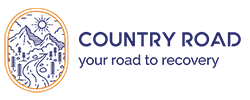Artificial intelligence has been all over the headlines lately. Whether it’s ChatGPT or self-driving cars, AI is reshaping industries and academics faster than anyone predicted. And healthcare is no exception. From diagnosing illnesses to personalizing treatment, AI is making inroads. But what about addiction treatment? Can AI’s transformative power extend to tackling one of the most complex and human-centered challenges?
What Is AI, Really?
If you were expecting AI to birth an era of Terminator style robots, you’ll be disappointed. Artificial intelligence, simply put, refers to machines and computer systems that can perform tasks requiring human intelligence. Think decision-making, pattern recognition, and even mimicking emotional responses (hello, chatbots!). Sounds amazing, right? But as with any shiny new tool, it’s worth looking at how, and if, it actually works in real life.
The Benefits of AI in Addiction Treatment
AI’s impact on addiction treatment is still in its early stages, but the potential applications are promising. Here’s a few ways AI is making waves.
Predicting Relapse
Relapse is one of the toughest hurdles in addiction recovery, and it’s often unpredictable. AI is now being used to analyze patterns in behavior, physiological data (like heart rate), and environmental triggers to predict when someone is at high risk for relapse. For example, wearable devices paired with AI software can monitor stress levels, sleep patterns, and even geographical locations (like frequenting high-risk areas) to send alerts when a relapse may be imminent.
Personalized Treatment Plans
It doesn’t take AI to understand that everyone's path to recovery is unique. But artificial intelligence is helping to tailor treatment plans to meet individual needs. By analyzing data from past treatments, genetic testing, and even a person’s medical history, AI can suggest evidence-based approaches likely to be the most effective for that individual.
Imagine an app that not only tracks your progress but also offers real-time suggestions - like recommending a specific therapy technique when it detects signs of heightened anxiety. That’s where AI shines.
Virtual Therapy
With the rise of telehealth, AI-powered virtual therapy tools are becoming increasingly popular. Chatbots and virtual therapists can provide support 24/7, guiding users through CBT exercises or offering coping strategies in the moment. While these tools aren’t a replacement for human connection, they can fill the gaps when a therapist isn’t immediately available.
Screening & Diagnosis
AI is also being used to improve the accuracy of substance use disorder screenings. Through natural language processing (NLP) and machine learning, AI can analyze speech patterns, word choices, or even facial expressions during assessments to flag signs of addiction or co-occurring mental health disorders.
Improving Access to Care
One of the biggest barriers in addiction treatment is access. With the help of AI, people can get connected to resources faster. Algorithms can match people with nearby treatment centers, support groups, or therapists based on their location, insurance coverage, and specific needs. Some platforms even offer virtual intake processes, cutting down on wait times.
The Drawbacks & Ethical Concerns
AI isn’t perfect and comes with its own set of challenges, particularly in a field as sensitive as addiction treatment where protecting patient health info is key.
- Privacy Issues: Collecting and analyzing personal data raises significant privacy concerns. Who owns this data? How is it protected? These are questions that need clear answers.
- Lack of Human Connection: Recovery is deeply personal, and the therapeutic relationship plays a huge role in healing. AI can supplement this, but it can’t replace the empathy and understanding of a human therapist.
- Bias in Algorithms: AI systems are only as good as the data they’re trained on. If that data is biased (e.g., not inclusive of certain demographics), the AI’s recommendations could be flawed.
- Over-Reliance on Technology: There’s a risk of leaning too heavily on AI and losing sight of the importance of holistic, person-centered care.
The Human Element: Where AI Fits into Holistic Treatment
While AI can provide powerful tools, the human element remains central. Compassion, trust, and connection are irreplaceable in the healing process. For instance, while a virtual therapist might help someone process their feelings in the middle of the night, a real therapist can create a safe space for deeper emotional exploration. AI tools should seek to enhance, not replace, these vital human interactions.
So, Is AI a Game-Changer or Just Hype?
The answer lies somewhere in the middle. It’s not a silver bullet, but it’s also not a nothing burger. It’s a tool that, when used thoughtfully, could revolutionize certain aspects of addiction treatment. For AI to truly transform addiction recovery, it needs to be integrated into a system that prioritizes both innovation and the core values of treatment: empathy, connection, and individualized care. As the technology continues to evolve, the addiction treatment field has an exciting opportunity to harness its power while staying grounded in what really matters.


